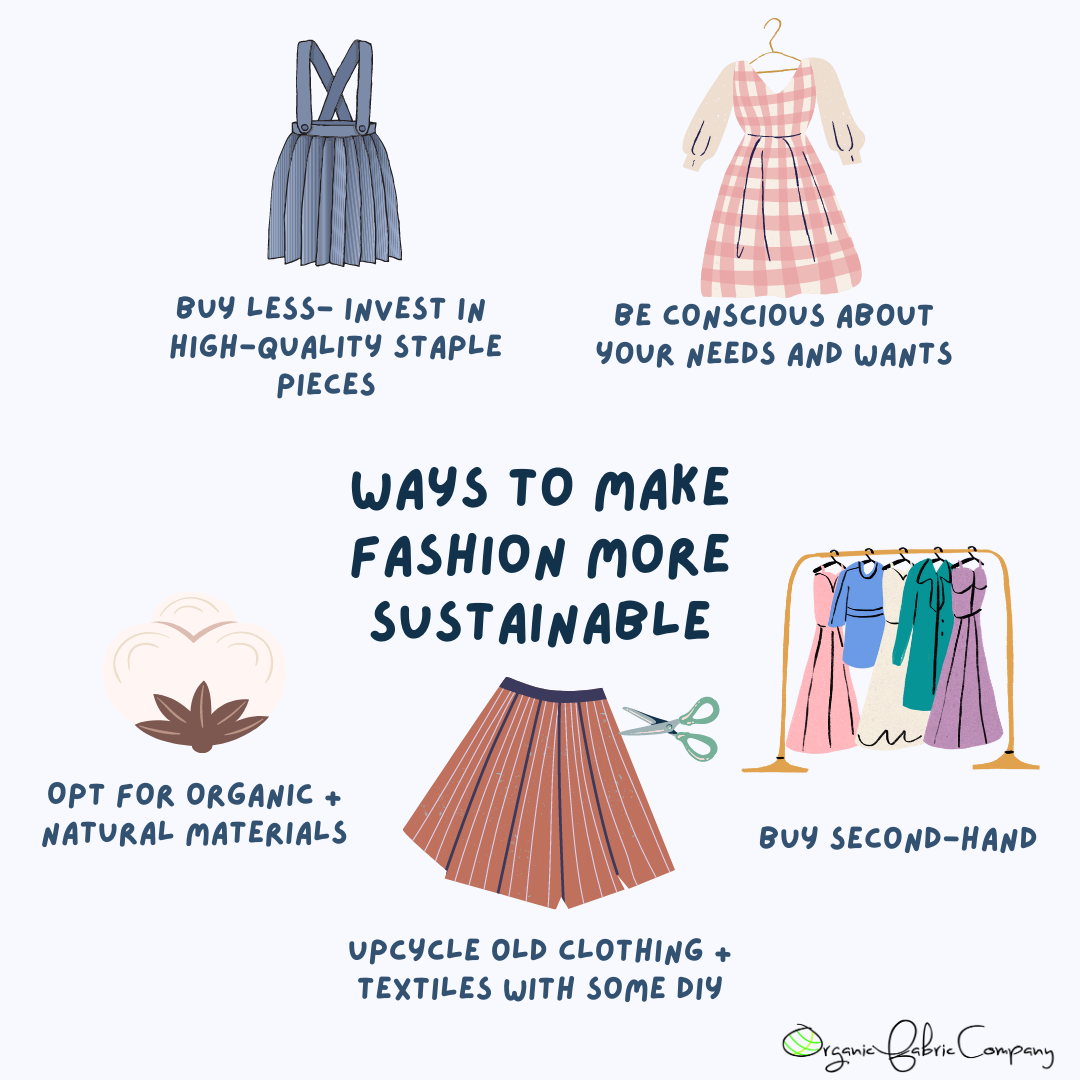Discover Cape Town Sustainable Fashion Boutiques and Brands
Discover Cape Town Sustainable Fashion Boutiques and Brands
Blog Article
Keep Ahead of the Curve by Discovering Ingenious Style Patterns
In a sector as dynamic as style, staying ahead involves even more than just adhering to current patterns-- it demands an expedition of advancement. The merging of technology and style declares a brand-new era of customer involvement.

Embracing Smart Textiles
Over the last few years, the apparel industry has actually witnessed a transformative shift with the assimilation of smart textiles, an innovative development that mixes modern technology with material. This advancement represents not only a blend of aesthetic appeals and functionality however likewise a considerable leap towards sustainability and customization in fashion. Smart fabrics, also called e-textiles, embed advanced electronic devices such as sensing units and conductive strings within the material, enabling garments to connect with the atmosphere or the wearer.
These textiles are designed to keep track of physical parameters, such as heart rate or body temperature, providing real-time wellness analytics. Past health and wellness applications, wise fabrics are also being made use of for flexible garments, which can change shade or pattern in feedback to ecological stimuli, hence using a dynamic fashion experience.
Moreover, the advancement of energy-harvesting textiles that create power from motion or sunlight is leading the way for self-sufficient wearable technology. This advancement is appealing to environmentally aware customers and developers aiming to reduce the eco-friendly impact of style. As r & d in this field advancement, clever fabrics are anticipated to end up being increasingly widespread, reshaping the landscape of contemporary fashion with their multifunctional capacities.
The Rise of 3D Printing
Revolutionizing the manufacturing landscape, 3D printing has actually emerged as a game-changer in the fashion industry. This innovative technology has actually allowed designers to press the boundaries of creative thinking, creating complex and customized garments that were formerly unbelievable. By leveraging electronic style and additive production, 3D printing helps with the production of intricate geometries and patterns, allowing developers to experiment with new textures and frameworks.
A notable advantage of 3D printing in vogue is its capacity to produce on-demand, lessening waste and lowering supply needs. This effectiveness not just optimizes production procedures yet also enables for rapid prototyping, allowing developers to bring their visions to life in a much shorter duration. Furthermore, 3D printing supports personalization somewhat unequaled by typical methods, providing individualized fits and special layouts tailored to individual consumer preferences.
The increase of 3D printing has actually also democratized style, making it obtainable to arising developers that can currently produce high-grade pieces without substantial financial investment in typical production framework. As modern technology remains to breakthrough, the style sector is positioned to harness the complete potential of 3D printing, exploring brand-new products and strategies that will undoubtedly redefine how style is developed and generated.
Lasting Fashion Developments
As the garment industry faces journalism demand for environmental obligation, sustainable style technologies have actually emerged at the forefront of transformative adjustment. The expanding understanding of ecological impact has actually fueled a shift in the direction of even more eco-conscious practices and products. Developers and brands are now prioritizing sustainability, integrating approaches that lessen waste and lower carbon impacts.
One considerable development is the surge of round style, which highlights recycling and upcycling to prolong the lifecycle of garments. This method not only minimizes waste however likewise motivates customers to embrace a much more conscious technique to clothes consumption. In addition, the use of lasting products, such as natural cotton, hemp, and recycled polyester, has actually acquired traction. These products call for much less water and energy throughout production, considerably minimizing ecological influence.
Another breakthrough depends on the adoption of cutting-edge dyeing methods that utilize waterless procedures or natural dyes, thus lowering the large quantities of water and chemicals typically utilized in textile dyeing. Furthermore, my review here developments in biotechnology have brought about the creation of lab-grown leather and textiles, using cruelty-free and ecologically friendly choices to traditional products. Through these pioneering efforts, the fashion business is making significant strides in the direction of an extra sustainable future.

Tech-Integrated Clothing
Tech-integrated garments stands for a revolutionary combination of fashion and modern technology, improving just how people connect with their apparel. This ingenious domain is noted by the incorporation of smart fabrics and ingrained digital parts, boosting both capability and aesthetic charm. From fitness trackers embedded in sports apparel to warmed jackets regulated via mobile phone applications, tech-integrated garments supplies consumers unprecedented convenience and adaptability.
Pioneering brand names are driving this fad, concentrating on producing garments that respond to ecological stimulations or customer commands. As an example, some garments can change shade or pattern in response to temperature changes, while others incorporate biometric sensors to keep an eye on health and wellness metrics like heart price or stress and anxiety levels. The seamless integration of technology right into fabrics also includes ecological sustainability, with efforts to establish self-cleaning materials or garments that get used to weather conditions, therefore decreasing the requirement for several layers.
Furthermore, the arrival of wearable innovation is not simply restricted to clothing yet extends to devices like watches and glasses, more broadening the extent of tech-integrated fashion. As the market proceeds to innovate, the capacity for customization and customization in apparel grows, using customers unique, tech-enhanced fashion experiences that provide to their specific demands and preferences.
Future of Virtual Fashion
In the last few years, the future of digital style has actually emerged as a transformative force within the industry, leveraging developments in digital innovation to redefine exactly how fashion is created, experienced, and eaten. By integrating increased fact (AR), virtual fact (VIRTUAL REALITY), and 3D layout tools, designers can now craft immersive and interactive experiences that go beyond traditional style limits. Online style enables the creation of garments that exist entirely in digital atmospheres, providing endless opportunities for advancement without the restrictions of physical production.
This electronic change not only presents opportunities for creative expression but additionally addresses sustainability concerns intrinsic in traditional fashion techniques. Cape Town Sustainable Fashion. By eliminating the need for physical sources, digital fashion lowers waste and minimizes carbon impacts. In addition, the surge of online style lines up with the increasing customer need for one-of-a-kind and personalized experiences, as virtual garments can be personalized and tailored to private preferences with convenience

Final Thought
The garment industry's future depend on the integration of sustainable techniques and cutting-edge technologies - Cape Town Sustainable Fashion. Smart textiles and tech-integrated clothing are improving capability, while 3D printing supplies chances for personalization and waste decrease. Sustainable style, via eco-friendly products and circular strategies, shows a commitment to environmental stewardship. In addition, virtual style is poised to redefine consumer interactions. Adjusting to these patterns is important for brand names looking for to remain affordable and relevant in this rapidly progressing landscape.
In recent years, the style find out industry has experienced a transformative shift with the combination of smart fabrics, a sophisticated advancement that mixes modern technology with fabric.As the fashion industry grapples with the pushing need for environmental duty, sustainable fashion developments have emerged at the leading edge of transformative modification.In current years, the future of digital fashion has emerged as a transformative pressure within the sector, leveraging advancements in digital innovation to redefine how style is created, experienced, and taken in. The rise of digital fashion straightens with the boosting consumer demand for special and personalized experiences, moved here as online garments can be customized and tailored to individual preferences with convenience.
The style industry's future lies in the assimilation of lasting practices and innovative modern technologies.
Report this page